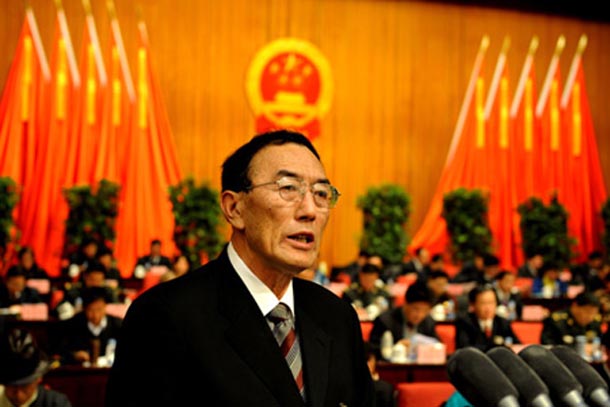 The governor of so called Tibet Autonomous Region and another Tibetan man, chairman of the Tibetan People's Congress will resign this week, the Chinese state controlled news service reported on Tuesday.
The governor of so called Tibet Autonomous Region and another Tibetan man, chairman of the Tibetan People's Congress will resign this week, the Chinese state controlled news service reported on Tuesday.
Jampa Phuntsok, (Ch: Qiangba Puncog), 62, will formally tender this resignation, which he claims is not directly linked to the March 2008 peaceful protests, during a annual session of the so called regional congress later this week.
"This is a normal rotation; in our country, men usually retire at the age of 60," stated a Chinese Communist Party member who identified himself as Lin. But, But, Beijing wants to ensure "long term stability" in Tibet increasing "economic investment and assistance." President Hu Jintao stated this on 8 January during a Politburo meeting of the Communist Party on the central Himalayan region.
Speaking on condition of anonymity, a Chinese expert on Tibet contradicted that, "usually, officials continue to serve after they reach the retirement age-until they are 70."
 "But it is likely that the old man has been broken down by they strained atmosphere in Tibet after the 2008 riots." he continued.
"But it is likely that the old man has been broken down by they strained atmosphere in Tibet after the 2008 riots." he continued.
Lekchok, (Ch: Legqog, the chairman of the Tibetan People's Congress, will also reportedly present his resignation during the ongoing parliamentary session, which opened on Sunday.
The unrest began in the Tibetan capital of Lhasa, on 10 March 2008, when Buddhist monks took ot the street to commemorate the 49th Anniversary of Failed Uprising against the occupation of the Chinese communist regime.
Beijing government claims that at-least 22 people died and more than 600 were injured in the riots and Chinese military reaction, which then spread to Chinese Gansu province and caused an estimated $35 million worth damage, according to official reports in China.
The Dharamshala-based Tibetan Government in-exile put the casualty figures much higher, at more than 220 Tibetans have been killed, 1,294 injured and 290 sentenced, more than 5,600 were arrested or detained and over 1,000 disappeared after the Chinese armed military deadly cracked down in all parts of Tibet.


![Tibet has a rich history as a sovereign nation until the 1950s when it was invaded by China. [Photo: File]](/images/stories/Pics-2024/March/Tibet-Nation-1940s.jpg#joomlaImage://local-images/stories/Pics-2024/March/Tibet-Nation-1940s.jpg?width=1489&height=878)















